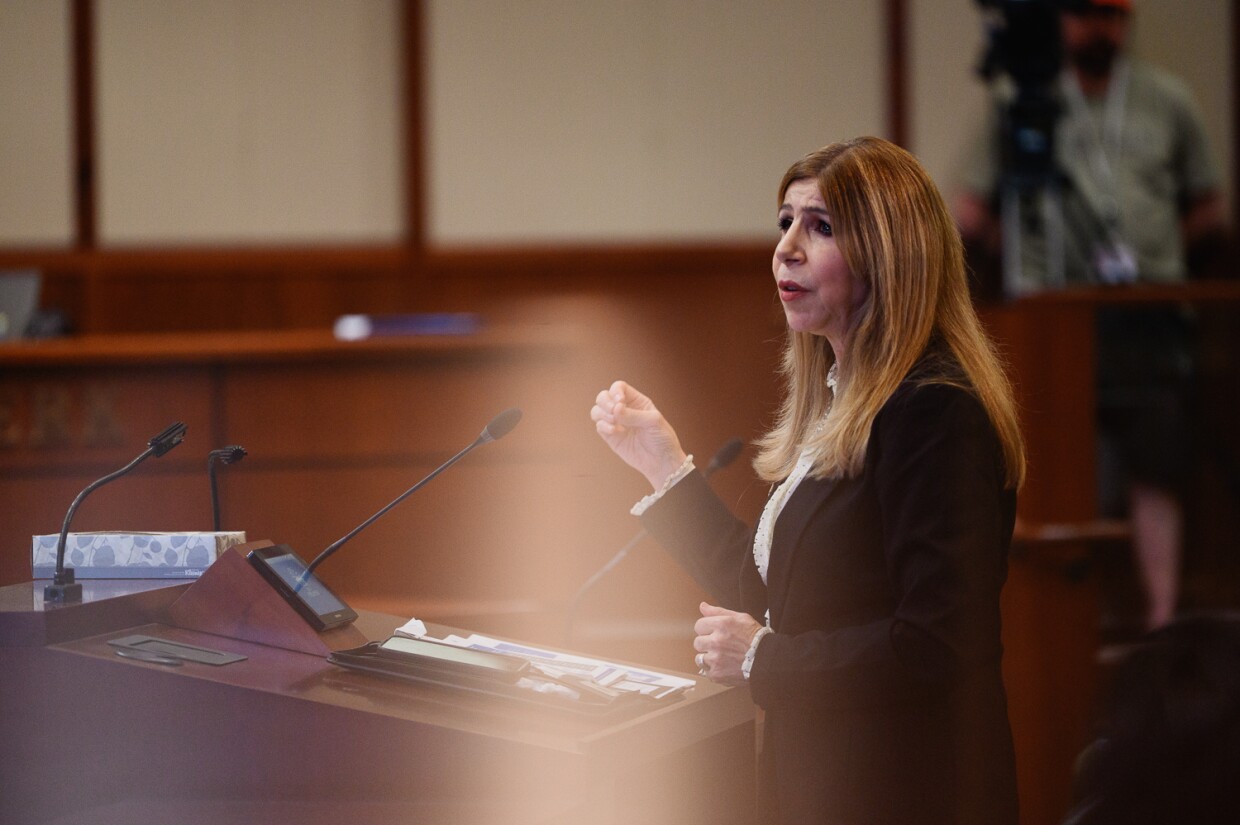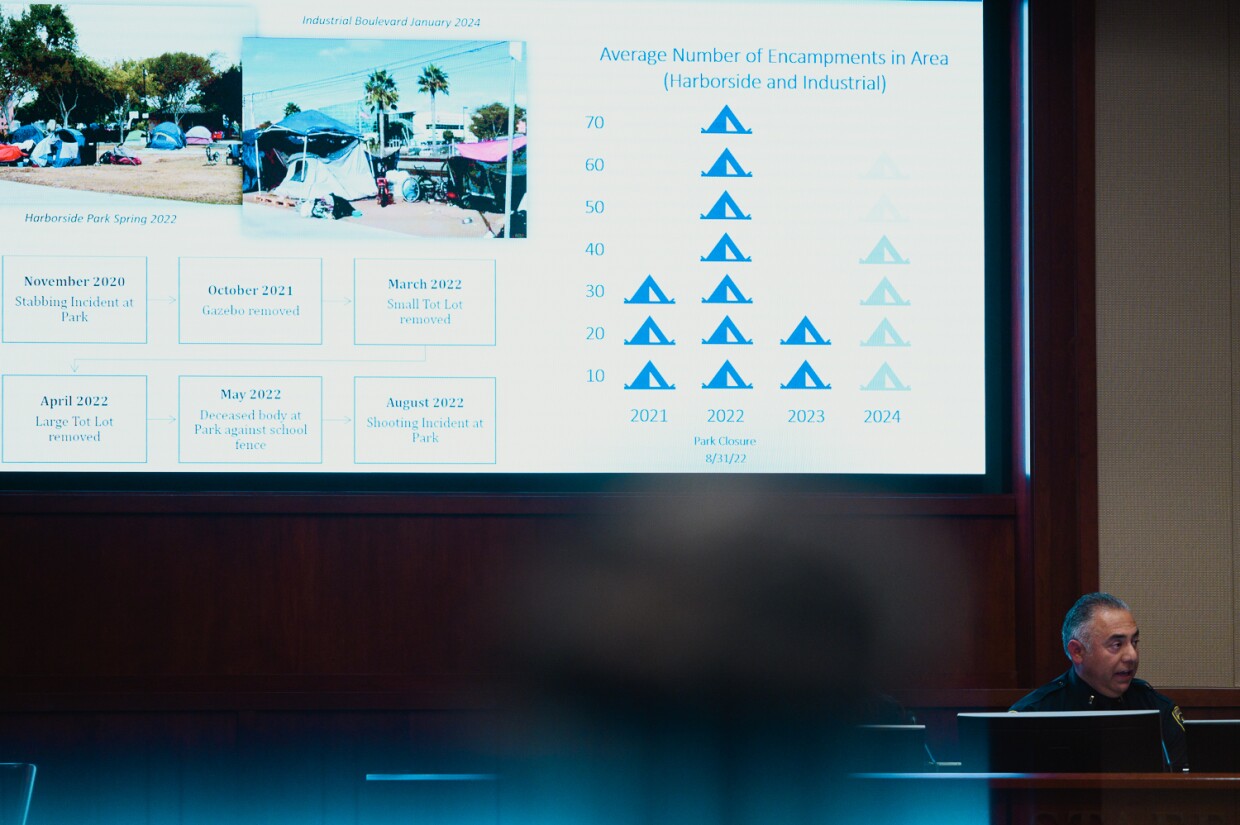The U.S. Supreme Court’s decision to take up a major case on encampment bans has reverberated in Chula Vista, where city leaders have not yet settled on how to regulate homelessness.
The case, named after the Oregon city of Grants Pass, could expand or limit the power of cities to criminalize camping on public property.
A number of California cities, including San Diego, have passed camping bans in recent years, even as a federal court ruled that those actions could violate the constitutional rights of unsheltered people if they have nowhere else to sleep.
In Chula Vista, city leaders are still weighing different actions around homelessness, including a limited camping ban and a safe camping site. A Supreme Court decision in the coming months could play a key role in shaping what the county’s second-largest city decides to do next.

The question at the center of the case is whether cities should be able to ban people from camping in public areas if they have nowhere else to sleep. In 2018, the 9th Circuit Court of Appeals found that those bans violate the constitutional rights of unhoused residents if they have nowhere else to sleep. But the Supreme Court could overrule that decision later this year.
Chula Vista community advocate Sebastian Martinez agrees with the 9th Circuit Court’s decision. He worries that, if the Supreme Court overturns that 2018 ruling, it could lead the city to take more aggressive action against encampments — and give officials less reasons to keep building shelters and other housing resources.
“I don't know that you'd see any projects related to creating shelter for unhoused people were it not for rulings like that,” Martinez said. “Folks would just be jumping directly to enforcement measures rather than trying to create solutions.”
Mayor John McCann and other city leaders have repeatedly cited the 2018 decision as motivation for building the Otay bridge shelter, which opened in May. City staff have also recommended against passing a complete encampment ban because of the ruling, pointing to federal lawsuits filed against other cities.
Many officials, however, are looking to the Supreme Court to overturn the 9th Circuit Court’s decision. Among them is District Attorney Summer Stephan, who told the Chula Vista City Council on Tuesday that the 2018 ruling has made it too difficult for cities to navigate those legal challenges.
“How can municipalities really do the best thing they can for their community when their hands are tied?” Stephan said. “The situation is not going to resolve without different laws.”

Stephan’s office had filed an amicus brief with the Supreme Court, urging it to take up the encampment case. In an interview, she said she hoped the court would overturn the 9th Circuit Court’s decision.
UC San Diego Homelessness Hub Managing Director Jennifer Nations said she wouldn’t be surprised if the Supreme Court were to vote to overturn the 2018 ruling. But she shares Martinez’s worry that it will lead to cities focusing more on penalizing unhoused residents and less on slowing the crisis.
“When we make it easier for jurisdictions to try and make homelessness less visible, we wind up in a position where jurisdictions are less pressured to do the hard and more expensive thing to provide people with the safety net,” Nations said.
Homelessness, fueled by stark inequality and a shortage of affordable housing, has continued to rise across San Diego County. In December, the county reported that the number of people losing homes again outpaced the number moving into housing.
In September, a city Point-in-Time Count found that Chula Vista’s unsheltered community had grown to 786 people. The South Bay, excluding San Ysidro, is home to about 6% of the county’s unsheltered population, according to the regional homelessness agency.
Chula Vista’s approach to homelessness has faced few legal challenges so far. In 2022, a group of advocates and unsheltered residents filed an injunction to try to block the city from evicting an encampment at Harborside Park. A judge in the Southern District Court threw it out, citing clerical issues with the injunction.

But leaders are facing growing pressure to act from business owners — particularly people working near one of the city’s largest encampments in the Harborside neighborhood. Some owners said at the Tuesday City Council meeting that they supported greater criminalization of the encampment’s residents. Others said they thought the city should focus on offering more resources and stable housing.
“All of this should never be done by force,” Palomar Toys owner Kwon Kim wrote in a letter to the council. “In the end, people who don’t like it will come back near Harborside Park, where life is cold and hungry but free.”
Nations agreed that the focus should be on offering resources — and on preventing people from falling into homelessness in the first place.
“We are waiting for the court to adjudicate this, when what we really need is federal and state governments to make what really are massive investments in disrupting the cycles that can lead people into homelessness,” she said.






